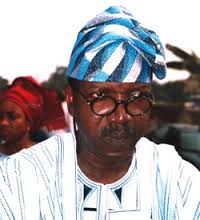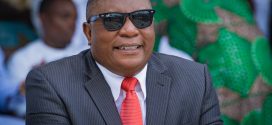My attention has just been drawn to the article written by our revered Professor Wole Soyinka under the title: The Challenge of Change-A Burden of Choice in which he seemingly made a cautious endorsement of General Buhari.
My concern with the article is the part that reads thus “When I read the statement attributed to a scion of a political family that his father was “not jailed” but was merely “invited for interrogation as required by military tradition and policies then”, I felt deeply offended, but mostly saddened. For this adjustment of reality provided evidence of yet another lesson unlearnt.”
I want to assure the Professor that this was neither my answer nor my response to a simple question of whether or not my father forgave General Buhari before he died. But these must have been the words of some mischievous journalists who decided to embellish my answer with their own words as several papers went to town with different versions of what I said. I just never took them to task on what they wrote because I have since found out that our newspapers are generally in the habit of making a sensation out of every news item and usually end up distorting the news. There is no doubt that being the public figure that you are; you must have experienced such misrepresentations by newspapers as you grant interviews from time to time. It is for this reason that I always shy away from giving interviews, but whenever I do, I generally ask where possible to preview the interview before publication so as to avoid any acts of omission or commission. This particular case was even a phone interview. I had thought that what happened to my father during General Buhari’s administration was enough of public knowledge that the possibility of distortion/concoction was highly remote, but sadly, I was obviously mistaken.
I would not blame the Professor for feeling the way he did, I would equally feel as ‘offended and mostly saddened’ and I actually was, when I learnt of what some papers wrote to embellish what I said, and as a matter of fact, I never saw or read the particular newspaper from where the Professor culled his extract.
How on earth could I have said that my father was not thrown into jail when I was saddled with routinely visiting him at Agodi Prisons after the arduous and rather demeaning task of taking permission from the military authorities each time I had to visit him? What I told the newspapers was that my father was not jailed – that is, convicted by the court. I even went on to explain that, as was customary in all military coups, important political leaders are generally detained and that his case was no exception. But that what was strange and annoying was the fact that after my father was tried twice by the military tribunals and was found innocent on both occasions the military refused to release him. I went further to say that my father was not released until General Babangida took over government after he overthrew General Buhari.
In the said interview, I mentioned that I had in a previous interview accused the military of having a hand in hastening the death of my father but that the person responsible for that was the late Onyearugbulem who came to harass my dad in his house.
However, the main item I wanted the newspapers to take away was the fact that my father forgave them before he passed on and that, as a Christian family, my siblings and I have since forgiven the military junta. I also mentioned that I had met General Buhari some years ago in Kaduna at a public function where I expressly stated that he had been forgiven.
People who know me would testify that I am an easy going, peace-loving and a person of integrity (not to be immodest). I have never had any reason to lie about anything and in this particular instance, there was absolutely no reason to do so, even if I wanted to. As a Christian, I find it very burdensome to dwell on past injustices as I always take consolation in the Bible passage that vengeance is the Lord’s. All I need is a sincere apology from anyone who offends me no matter how grievous a sin he has committed. I forgive easily, although wisdom demands that I remain circumspect in case of future reoccurrence. I live by a philosophy that what cannot be undone has to be forgiven and forgotten particularly when the doer is remorseful.
Tokunbo Ajasin,
Ibadan, Nigeria.
 Hottestgistnaija.com
Hottestgistnaija.com





